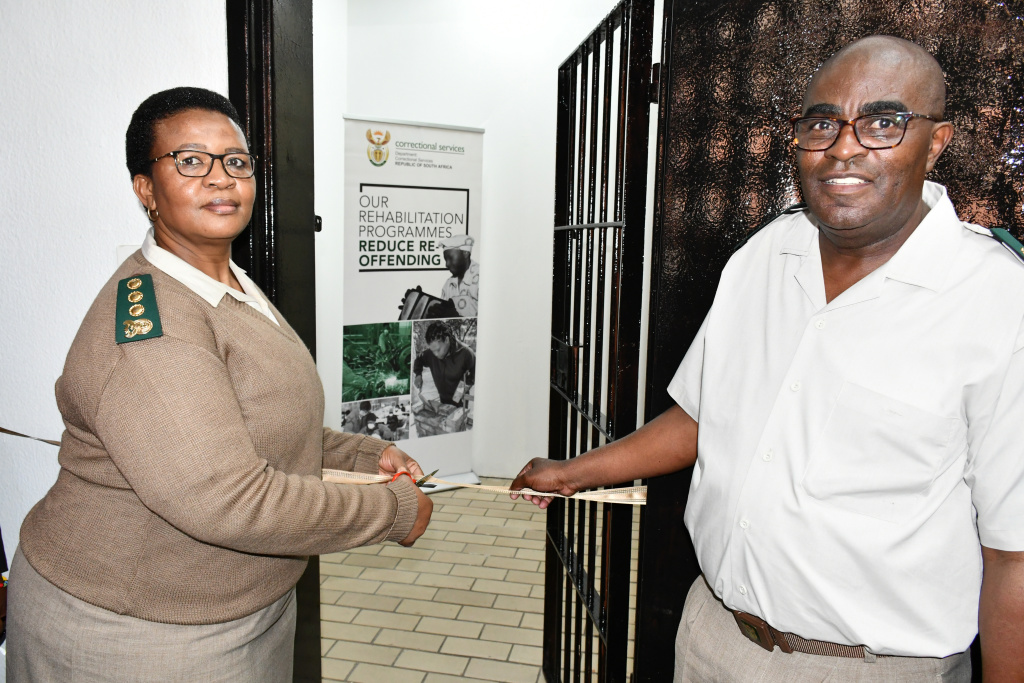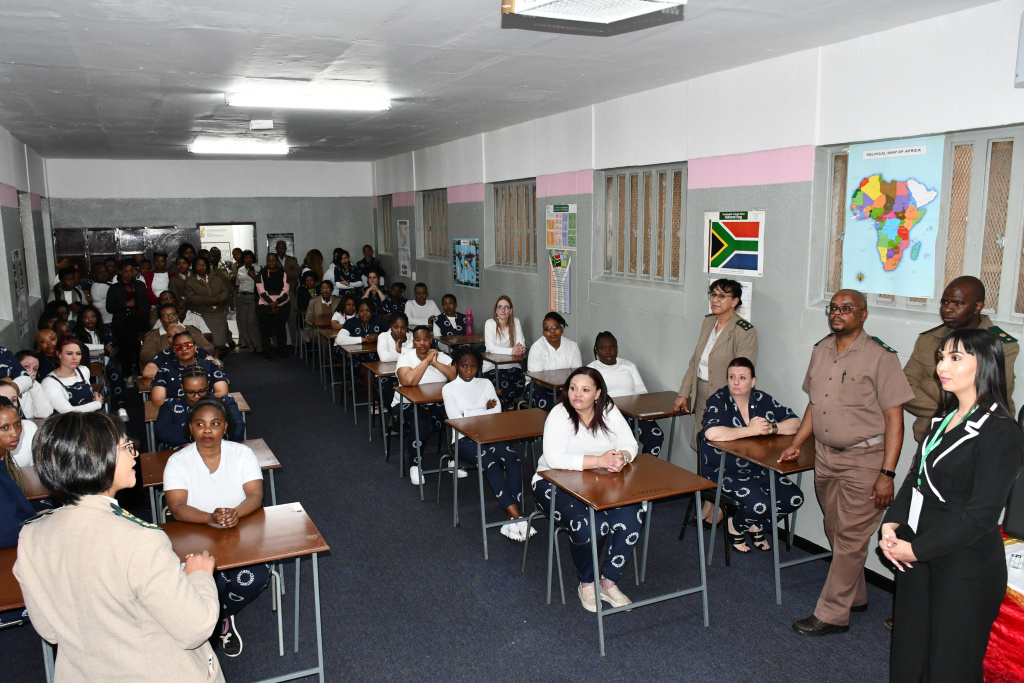
As part of commemorating Women’s Month, the Department of Correctional Services (DCS) joined forces with the Department of Basic Education (DBE), Stellenbosch University (SU) and Intelsat Global Service Corporation to launch a Telematics School Project (TSP) for female offenders and learners based in Johannesburg Correctional Facility on Thursday, 22 August 2024.
Delivering the keynote address, DCS Chief Deputy Commissioner (CDC), Anna Molepo, said “this innovation could not be possible without key partners’ effort and collaboration. The visual classes do not replace our educators and face-to-face classes, but serves as an additional educational tool beyond the classroom walls”. CDC Molepo appreciated the devices and technical equipment which were sponsored by key partners. She also used the opportunity to encourage learners to make use of this opportunity to capacitate themselves academically and to plan their future beyond the walls of incarceration.
Telematics use a combination of information and telecommunications technologies that disseminate content over large networks. Learners who are connected to the system, regardless of their location, can interact with educators through this audio-visual system.

TSP offers academic virtual classes using satellite and live-streaming to learners in Grade 10 to 12. This digital platform offers 15 subjects rendered in both English and Afrikaans. These subjects include Physical Sciences, Life Sciences, Technical Sciences, Mathematics, Mathematics Literacy, Technical Mathematics, Geography, Accounting, Tourism, History, Economics, IsiXhosa, Business Studies, English and Afrikaans.
Learners are able to pose questions during the live broadcast and can also send them using digital messaging networks. The virtual platform utilises zero-rated website (schools.sun.ac.za) where users can access the website for free, download videos and learning materials without using data or internet connection.
Lessons are facilitated by curriculum specialists, subject advisors and experienced teachers, to help learners to easily comprehend key topics and to pass exams.
Professor Meahabo Magano, Executive Director for Tuition Support and Facilitation of Learning from the University of South Africa (UNISA) rendered a motivational talk, with a specific focus on UNISA supporting education and rehabilitation programmes, women empowerment and adapting to modern technologies.
“When you empower a woman, you empower a nation. It does not matter where you are, even when you are behind the bars. Nobody can lock your mind and thinking. You are free to accelerate and to become what you what to be. As an institution of higher learning, we are working closely with inmates from first year to PhD level,” said Prof Magano.
Prudence Nabuza, an offender and Grade 12 learner expressed profound gratitude for this life-changing initiative. “This initiative is going to be beneficial to us as learners because we were struggling with content when it came to our studies. It will help us do our schoolwork properly. This programme will assist me a lot as I am planning to further my studies after completing matric, by enrolling for a Law qualification and to build my career path,” she said.
DCS Educationist, Sibongile Skhosana added that: “this programme is going to make our work easier because it comprises of workbooks, and as teachers we can further explain the lessons that learners did not understand. We are going to use the same content for revision for final year matric examinations”.
DBE representative, Boitumelo Butjie said the state-of-the-art solution will enable the learners to access digital educational resources that will address the gaps such as shortage of teachers and learning material, by connecting with instructors remotely.
Representing Stellenbosch University, Sharain Suliman explained that this joint initiative is a brainchild of the Western Cape Education Department and Stellenbosch University, to offer digital classes through technology and mainly targeting Grade 10 -12 learners as well as educators.
Nqabomzi Haya from IntelSat capped off the occasion by demonstrating how the system works, including workbooks, website, broadcast, library and technology used to deliver quality lessons. She further said that the company provides global connectivity using satellite and latest technology tailored according to learners needs.
